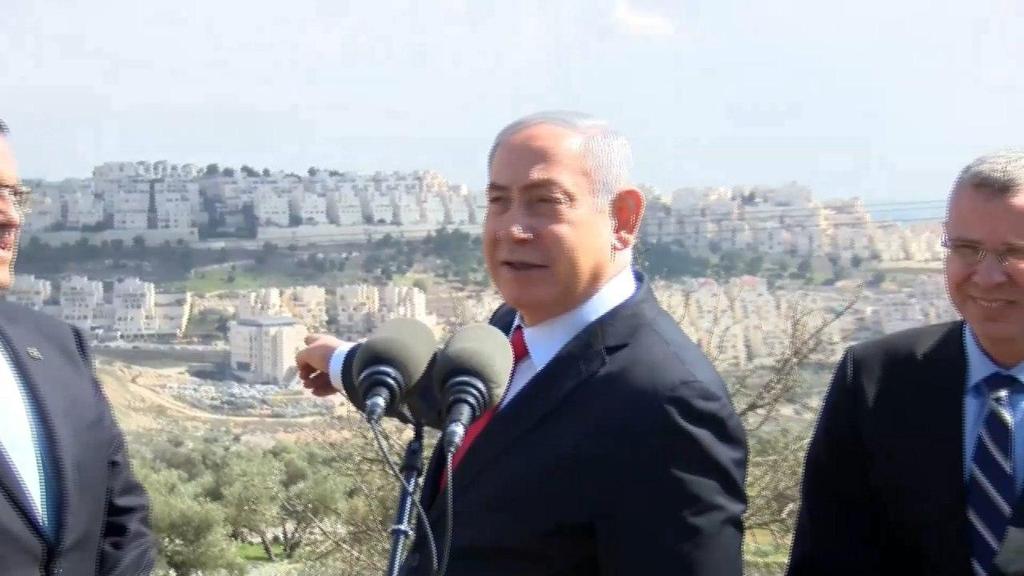Getting your Trinity Audio player ready...
Prime Minister Benjamin Netanyahu on Thursday announced the construction of thousands of housing units in Israeli settlements in Jerusalem.
Netanyahu said there are plans for at least 4,000 houses to be build, with 3,000 of the units set to be constructed in the settlement of Givat HaMatos in south Jerusalem and another 1,000 in Beit Safafa, a Palestinian town in East Jerusalem, and is meant to benefit the local residents.
The announcement comes less than two weeks before the March 2 election and eight years since the plans for construction in the area had been put forward but halted due to international pressure.
“We are going to build the Givat Hamatos neighborhood, we have removed all of the impediments, " said the prime minister from the nearby Har Homa settlement, which overlooks Givat HaMatos.
"I must say 1,000 of these will be put on the market immediately, in the coming days, by PMO Acting Director General Ronen Peretz,” he said.
"The Arab residents have a housing problem for which we are providing a solution," he added, referring to the construction in Beit Safafa.
Netanyahu said the plan is meant to connect all parts of the "united" Jerusalem and establish a new Jewish neighborhood.
“Today, I announce the establishment of Har Homa Heh, a neighborhood in which we will build 2,200 residential units. This is another approximately 12,000 residents. Har Homa will be a neighborhood with around 50,000 residents. This is like an average-sized city in Israel, just in this neighborhood alone."
He said the decision was made despite "strong international opposition."
A spokesperson for Palestinian President Mahmoud Abbas slammed the plan shortly after Netanyahu's announcement.
"Netanyahu's insistence on building thousands of settlement units is the systematic destruction of the two-state solution and the implementation of the Trump plan," said Nabil Abu Rudeineh.
The United States last month announced a reversal of four decades of American policy, saying it no longer viewed Israel's settlements in the West Bank and East Jerusalem as "inconsistent with international law".


